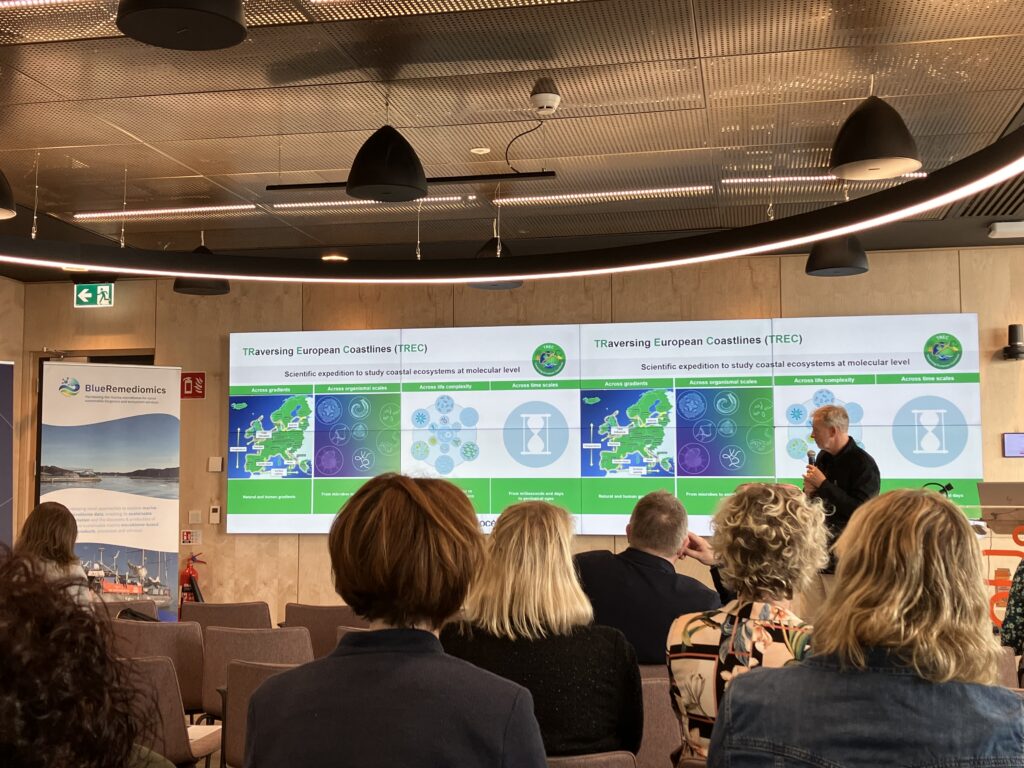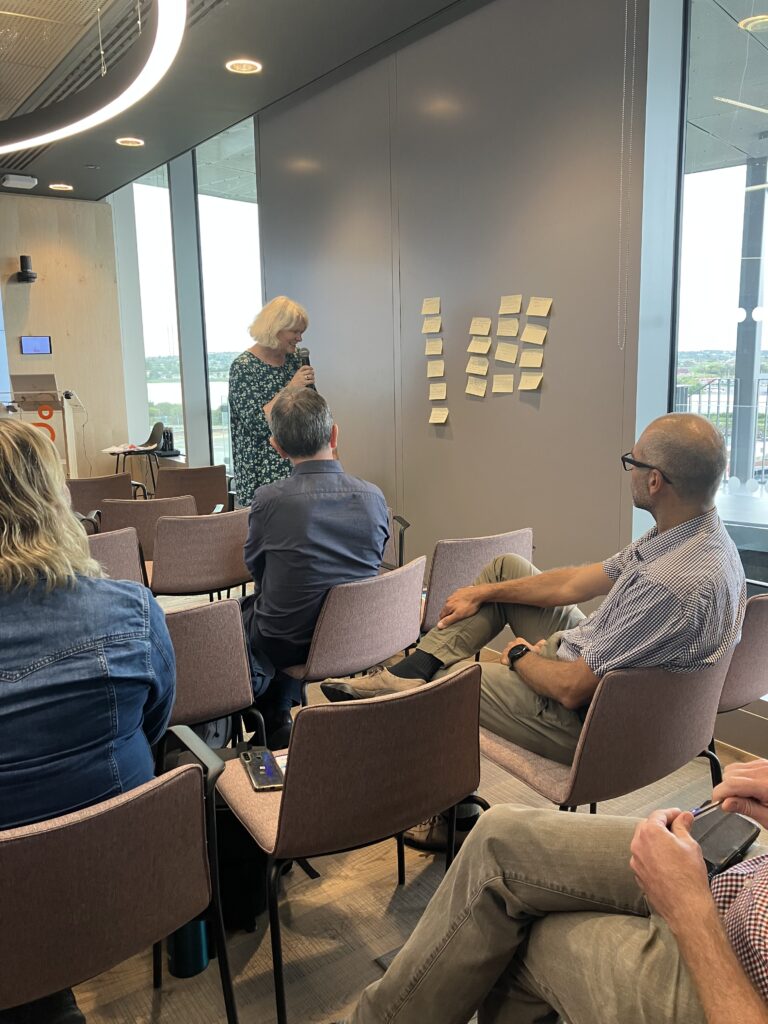“Microbes have taught us that you don’t have to be big to be powerful,” says Chris Bowler, chair of the scientific board of the Tara Ocean Foundation, director of the Tara Oceans consortium and co-coordinator of the Horizon Europe-funded BlueRemediomics project. “Acting at the grass-roots local level is the best way to engage society to ensure changes occur organically and with the participation of all stakeholders.”
 Chris Bowler presenting. Credit: Rebecca Pflanz / BlueRemediomics
Chris Bowler presenting. Credit: Rebecca Pflanz / BlueRemediomics
Chris opened discussions at the latest science-to-policy workshop in Galway, Ireland – the second in a series of eight Tara Europa Labs, connecting scientists with local decision makers and wider society to address regional marine challenges. The event was coordinated by Tara Ocean Foundation within the framework of BIOcean5D and BlueRemediomics, and in partnership with TREC and the Irish Marine Institute.
Human activities have had a significant impact on the ocean. Using a Town Hall format, the workshop engaged marine stakeholders on the importance of “doing no significant harm” when it comes to managing marine ecosystems. The group discussed how rigorous basic research should back up any intervention – which should be approached holistically, considering ecosystem connectivity and in collaboration across scientific disciplines.
 Abbe Brown facilitating discussion. Credit: Rebecca Pflanz / BlueRemediomics
Abbe Brown facilitating discussion. Credit: Rebecca Pflanz / BlueRemediomics
The discussion was led by Abbe Brown, Chair of the British and Irish Law Education and Technology Association and Professor of Intellectual Property at the University of Aberdeen.
“This was a fantastic opportunity to engage with a wide range of marine stakeholders about this really important issue. There was a real variety of views expressed and we look forward to building on this in further events,” Abbe says. “Science is part of society and society is part of science. The magic lies in working out how we take this forward in a workable way and the extent to which one needs to look beyond science to also include more social disciplines.”
We caught up with Chris to find out more about the event.
How did the workshop support our collective aims to protect ocean life?
The event opened a dialogue regarding the ‘do no harm’ principle as applied to ecosystem management, inviting the room to discuss ethical questions about interventions.
For example, how do they feel about nature-based vs technology-based interventions aimed at restoring natural ecosystems? Where should we draw the red line between chemical and biological interventions? If we can engineer a virus to kill off a harmful algal bloom that is devastating the local aquaculture industry – should we do it? If we can generate a synthetic alga able to sequester carbon to the bottom of the ocean with 100% efficacy – should we do it?
Or should we just leave the ocean alone and completely forbid all activities in some areas?
Why do we need to do events like the Tara Europa Lab?
Scientists need to dialogue with society. Gone are the days when we could work in splendid isolation in a quiet corner of a university without having to explain what we were doing. Science is at the service of society and we need to explain what we are doing, why we are doing it, and why it is important more broadly.
“Policy must be informed by science, there is no alternative. But policy makers need to understand that the scientific method is very different to the methods used in politics and in finance.
The event discussed the importance of scientific collaboration when approaching the challenge of marine protection. Why should we approach research in this way?
We need wide-ranging expertise to interpret the wealth of data that we now have available in science – no single scientist can master all the different approaches that we are now able to use. That’s why we have to work together with scientists that specialize in topics different to our own.
Today’s efforts to understand the natural world are very different to those of Darwin, Wallace and Von Humboldt – even though the questions we ask are often very similar to what they were struggling to understand more than 150 years ago. But their ethos of curiosity and astute observation still need to be at the heart of everything we do.
What do you hope the series of science-to-policy workshops will lead to?
More excitement for science and an appreciation of the importance of the scientific method to tackle extremely difficult societal challenges such as climate change and environmental degradation.
Read more about the event from BlueRemediomics.
The Tara schooner continues to traverse the European coastline along the TREC expedition route. Keep up to date and find opportunities to visit when it’s docked in different cities, in this interactive map.
The next major stopover will be in Bilbao, Spain, in October.